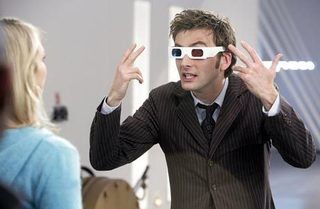There has also been a movement toward the cross platform releases, as the publishers try to reach a wider audience. Where as before, a console might sell on the games that were available to it, now it needs something more. This also puts more stress onto the development team, lengthening the project as the game is adapted for each of the different platforms. The innovations that differentiate each platform from another are also the obstacles that a development team has to overcome.
Also, the length of the game development projects have increased to meet the capacity of the newest generation of consoles. They can easily span years, and if a project isn't ahead of the technology curve when it begins it may find itself outdated by the actual time of release. This can also cause problems if release dates are set to occur at the same time as the release of a new console, or also if a different console upgrade is released before the game is finished.
With all of this new technology available, the prices of consoles are rising again. This can be off-putting for someone who only plays casually, not avidly, and doesn't feel the pressing urge to keep up with all of the licensed releases or sequels.

Personally, if the gaming market regains some stability, I can see the next big thing in gaming being full 3D, or 'virtual reality' type capabilities in home consoles. Actual 3D that appears to come out of the screen has become increasingly popular in cinemas in the last year, although the glasses still look as funny. I can also see a return to stylisation. The market has been pushing for gritty realism for a long time now, and I think that its almost reached capacity at current technology levels. I think it will go full circle back, and stylisation will become the trend instead.
http://arstechnica.com/articles/paedia/hardware/crossplatform.ars/2
http://www.tomshardware.co.uk/
http://www.idw-online.de/pages/de/news149909
http://www.scei.co.jp/corporate/release/pdf/050517e.pdf
http://news.cnet.com/2100-1040-866288.html
http://www.unrealtechnology.com/
http://blogs.guardian.co.uk/tv/2007/06/24-week/




No comments:
Post a Comment